

Table of contents:
When I first moved to Japan as an adult, I struggled to make meaningful friendships. I would invite people out, only to have them cancel later and realizing they had no intention of meeting up. In fact, many foreigners who live in Japan have a hard time making Japanese social connections.
It all comes down to the Japanese concept of ‘self’:
- true self – honne - 本音
- public face – tatemae - 建前.
Understanding the difference between honne and tatemae makes your life in Japan easier. Because it gives you a deeper understanding of Japanese language and culture. Also, it will help improve your social life in Japan. For example, helping to make Japanese friends or helping to better understand your Japanese co-workers.
Learn Japanese ➡️check out language app Rocket Languages to help you study Japanese 🇯🇵
1. Understanding Japanese Harmony to Explain Honne and Tatemae
To understand 'honne' and 'tatemae', you need to know that they are social constructs of a wider cultural philosophy of social harmony and balance, called 'wa' (和).
- Harmony and balance: Japanese Wa refers to the harmony and balance within a group or society.
- Social well-being: It is about the importance of group well-being and social connections.
- Importance of the group: Japanese wa chooses the needs of the group over their own.
- Shaping behavior: Wa plays a important role in shaping Japanese personality and behavior.

2. What Does Honne Mean in Japanese?
- Honne (本音) represents a person's true feelings, thoughts, and desires.
- Honne is only meant for your inner circle. In Japan usually means your family and maybe your closest friend.
- Honne is private because openly expressing yourself might cause social friction.
- The relationship between honne and social duties (giri) often features in Japanese drama. This is because honne explains tension between personal desires and societal expectations.
2.1. Understanding How Honne Affects Your Life in Japan
- Business Relationships: Honne is never shown in Japanese business relationships. Most people will never show their true self to Japanese coworkers.
- Deepened Connections: True friendship grows stronger when people share their honne. This is because it shows their real thoughts and feelings.
- Everyday life: This understanding of honne helps you better in everyday life in Japan. It makes it easier to value the balance between honesty and traditional culture.
Popular Articles


Tokyo Favorites: 20 Must-Do Experiences for Travelers
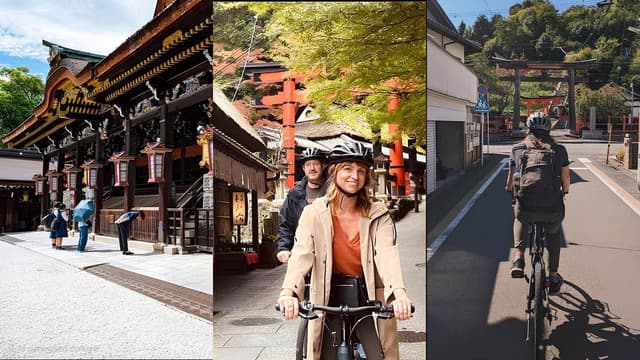
Kyoto Bike Tours: Discover the City’s Hidden Gems with Noru
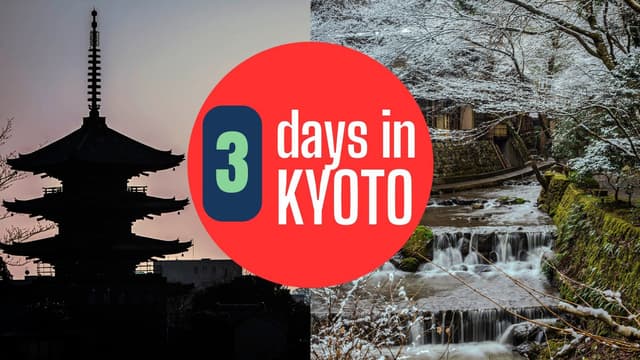
Kyoto 3-Day Itinerary: Best Things to Do for First-Time Visitors

Universal Studios Japan Tickets: Your Guide to Visiting USJ
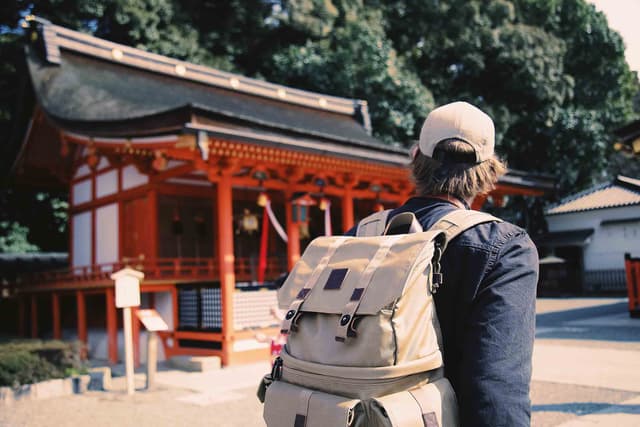
Find Out What Japan Really Thinks of Foreign Tourists

Manga Explained: Top Recommendations for Beginners
3. What Does Tatemae Mean in Japanese?
- The Japanese word 'tatemae' means your 'public face'.
- Tatemae is the behavior that people show in public.
- Tatemae can be an agreeable attitude that is used to avoid social confrontation or disagreements.
- Tatemae emphasizes politeness and the avoids direct confrontation.
REMEMBER! In Japan, maintaining social group harmony is more important than expressing personal feelings or opinions to the group.

3.1. What are the Advantages of Tatemae in Japanese Culture?
- Indirect Communication: In Japan, direct expressions such as "No" are rarely used. Instead, Japanese people will choose to be politely vague in their response. For example, instead of "no", a Japanese response might be "maybe" or "if it is possible."
- Avoiding Conflict: Tatemae often involves stretching the truth or telling white lies. This prevents conflict and smooths social interactions.
- Social Harmony: It supports the Japanese values of cooperation and respect. This way, you can focus is on others' feelings rather than one’s own true sentiments.

3.2. What are the Disadvantages of Tatemae in Japanese Culture?
- Perception in Japanese Culture: Some foreigners view the use of tatemae as two-faced. But, it is an essential part of showing respect within Japanese society.
- Stress and Relationships: Over-reliance on tatemae can lead to stress and fake relationships. It might prevent real emotional connections.
- Communication Issues: The fine line between honne and tatemae can lead to misunderstandings. It makes it difficult to recognize genuine intentions.
4. Balancing Honne and Tatemae: Navigating Social Expectations
Honne and tatemae are important concepts to understand if you want to fit into Japanese society.
Miscommunication Risks: The line between honne and tatemae can lead to misunderstandings. It can be challenging to separate someone's real intentions from their public expressions.

4.1. Building Japanese Cultural Awareness: Honne and Tatemae
- Recognize the Context: Understanding when to express honne and when to uphold tatemae is important. This cultural sensitivity helps prevent possible misunderstandings and supports smoother interactions.
- Building Relationships: Building a strong personal connection allows for a reduction in tatemae. Japanese people become more comfortable sharing their honne.
- Observe and Adapt: You should watch for non-verbal cues. Eye contact, facial expressions, and body language can show what people are thinking. Are they more inclined towards honne or sticking to tatemae.
5. How to Navigate Honne and Tatemae in Japanese Business
I meet a Japanese businessman who told me a story about moving to Kyoto from Hiroshima and not understanding the Kyoto-level of tatemae:
"The first day of my new job, the company president invited me to dinner. I was very pleased about this invitation, so I accepted. He told me this weekend was a good time. So, I went to his home and had dinner with him and his wife. It was an enjoyable evening. The next week at work, all my co-workers were talking about how rude I was to accept the invitation from our boss. You see, Kyoto people rarely say what they mean."
In Kyoto, extending an invitation to someone is not always a real offer. It is a form of tatemae. It demonstrates the intention politeness. To accept such an offer can be seen as rude because you are causing that person inconvenience or trouble. In such as case, it is best to politely refuse the offer.
- Understanding Office Dynamics: Making real connections with coworkers is crucial. It helps foreigners separate superficial pleasantries (tatemae) and genuine sentiments (honne). This is important in professional Japanese settings [8].
- Navigating Business Communications: Understanding honne-tatemae can affect one’s success within a company. Learning to read between the lines is a vital personal skill.
6. Japanese People Explain Tatemae and Honne (youTube video)
I will finish this article with a video. Here, Japanese people explain their own ideas and explanation of tatemae and honne. Enjoy!
7. Mastering Honne and Tatemae Through Japanese Language Learning
Understanding honne (true feelings) and tatemae (public face) goes beyond just knowing their definitions. These concepts influence how Japanese people communicate, especially in speech.
If you want to understand these subtle nuances in real-life conversations, learning Japanese with the right resources is essential. Language apps like Mondly and Rocket Languages offer structured lessons on:
✅ Politeness Levels – How Japanese speech changes based on social hierarchy.
✅ Cultural Expressions – Common phrases that reflect honne and tatemae.
✅ Real-Life Conversations – Dialogues with native speakers to improve comprehension.
By improving your Japanese skills, you’ll gain a deeper appreciation of social etiquette and learn how to read between the lines—a crucial skill for navigating Japan!
8. Honne vs. Tatemae in Japanese Gift-Giving Culture
In Japan, gift-giving (贈り物, okurimono) is an important social practice. While people may verbally downplay the significance of a gift (tatemae), their true feelings (honne) are expressed through the effort and thoughtfulness put into the gift itself. This is especially true during:
🎁 Omiyage (お土産) – Small souvenirs brought back from trips to share with friends and colleagues.
🎁 Seasonal Gifts (お歳暮 & お中元) – Presents given during mid-year and year-end to express gratitude.
🎁 Thank-You Gifts (お礼の品) – Thoughtful items given in appreciation.
Want to experience Japanese gift culture firsthand? Try Tokyo Treats, a subscription box filled with authentic Japanese sweets and snacks. Whether you’re exploring new flavors yourself or sharing with friends, it’s a fun way to understand how Japanese people express emotions through gifts rather than words.
FAQs
What do "honne" and "tatemae" mean in Japanese culture?
Honne refers to a person's true feelings and desires, which are often kept private and shared only with close friends and family. Tatemae represents the behavior and opinions one displays in public, aligning with societal expectations and norms.
Why do Japanese people use tatemae in their daily lives?
Japanese people use tatemae to maintain social harmony and avoid conflict. By presenting a public face that conforms to societal expectations, they ensure smooth interactions and preserve group cohesion.
How does the concept of "wa" relate to honne and tatemae?
"Wa" signifies harmony and balance within a group or society. The interplay between honne and tatemae helps maintain this harmony by balancing individual desires with collective expectations.
What challenges can arise from the honne-tatemae dynamic?
The tension between one's true feelings (honne) and public behavior (tatemae) can lead to stress and misunderstandings. Over-reliance on tatemae might result in superficial relationships and hinder genuine emotional connections.
How can understanding honne and tatemae improve interactions in Japan?
Recognizing the distinction between honne and tatemae enables better navigation of social dynamics in Japan. It fosters cultural sensitivity, aids in building authentic relationships, and enhances effective communication.
Loading Comments...

James Saunders-Wyndham
I've been immersed in Japanese culture and daily life for over 30 years and am proud to call Japan my home. Originally from Australia, my journey has taken me from teaching at Japanese universities to traveling extensively across the country, uncovering its hidden gems. As a web developer, I built Romancing Japan from the ground up to share these experiences with you. Whether it's the charm of old Kyoto, the pulse of Tokyo, or the tranquility of the countryside, I love helping others discover the magic of Japan—one story at a time.
Popular Articles

Tokyo Favorites: 20 Must-Do Experiences for Travelers
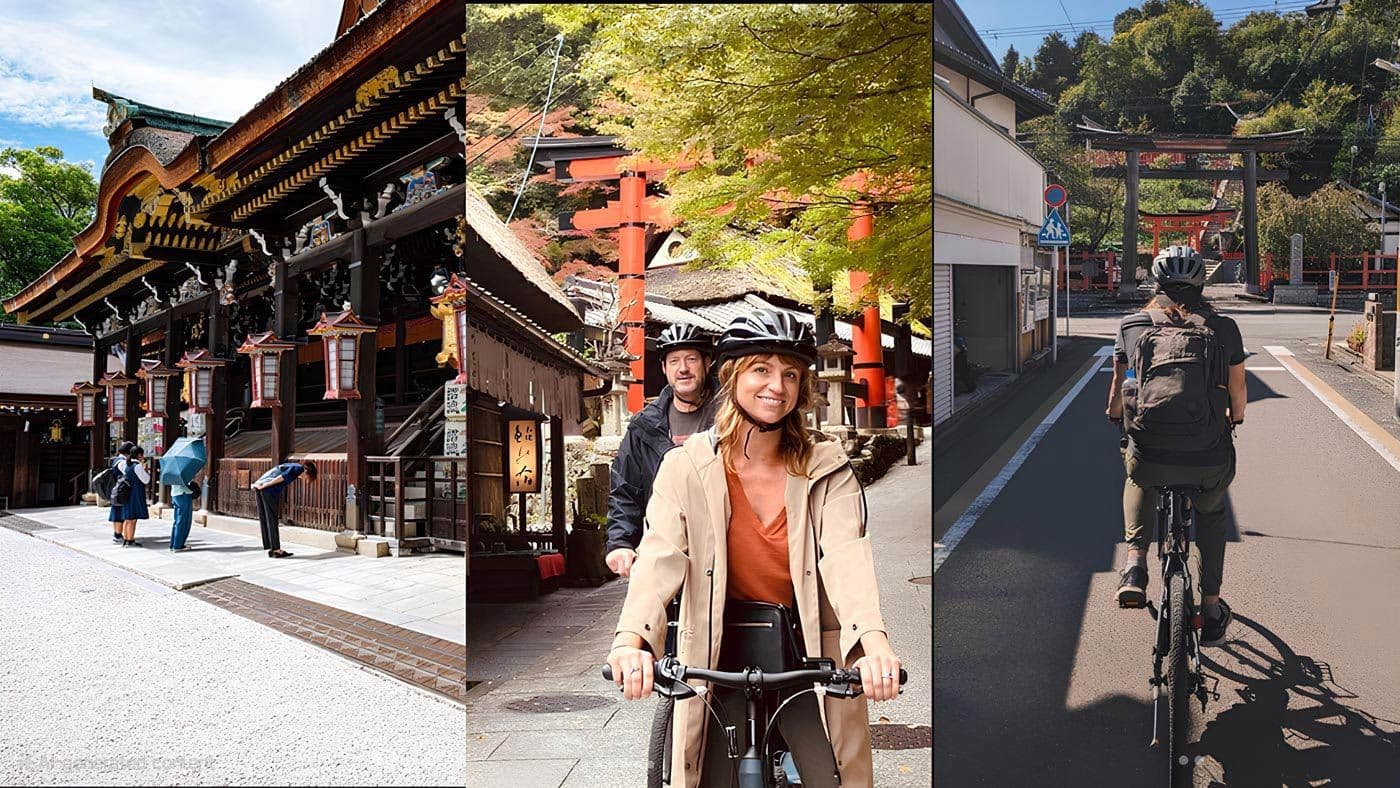
Kyoto Bike Tours: Discover the City’s Hidden Gems with Noru
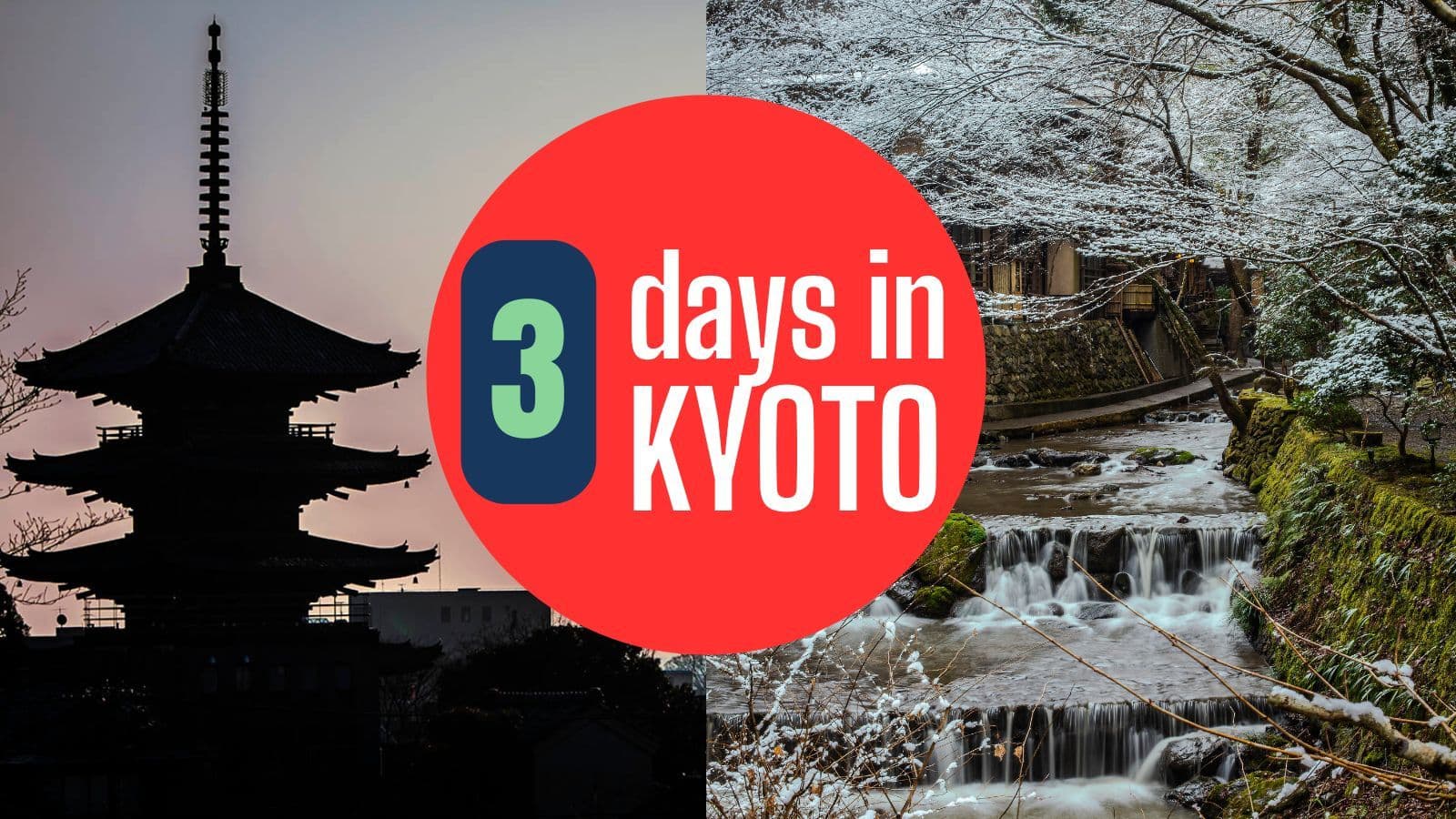
Kyoto 3-Day Itinerary: Best Things to Do for First-Time Visitors

Universal Studios Japan Tickets: Your Guide to Visiting USJ
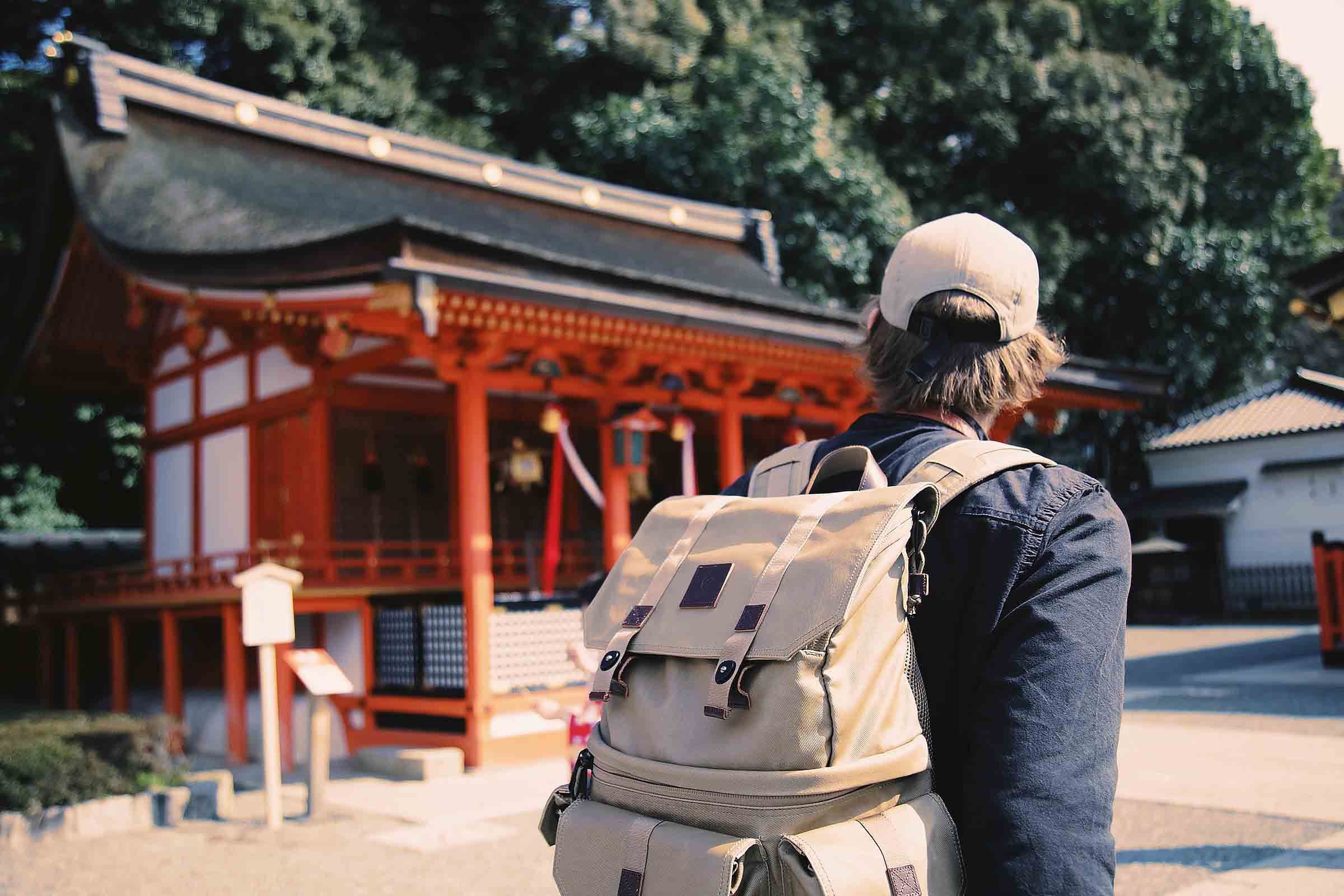
Find Out What Japan Really Thinks of Foreign Tourists
